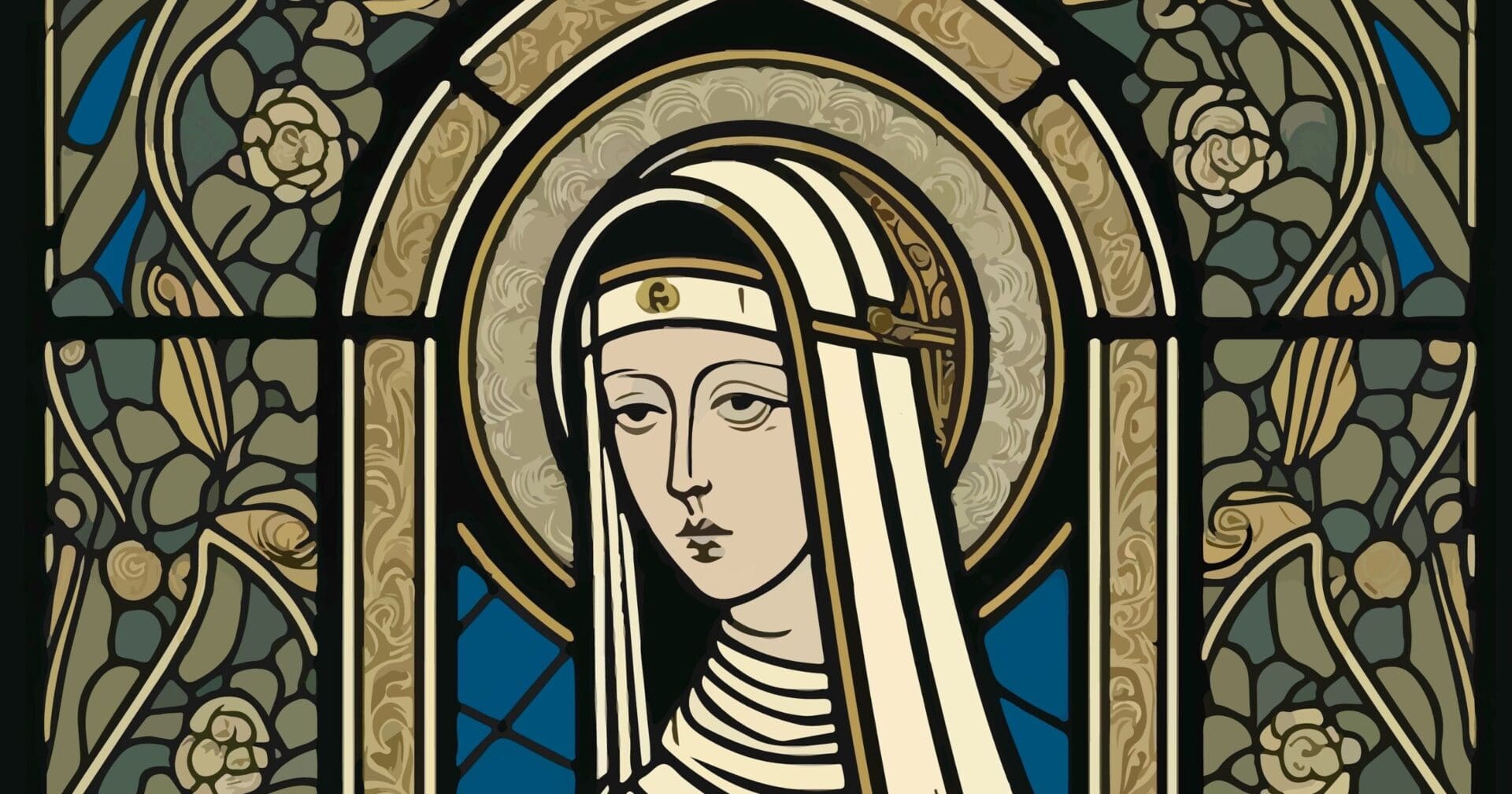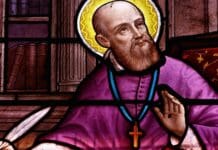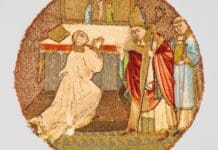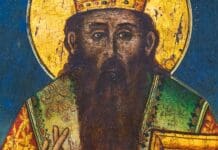Saint Hildegard of Bingen, often referred to as the “Sybil of the Rhine,” was an extraordinary figure in the Middle Ages. Born in 1098 into a noble and affluent family at Bermersheim, Alzey, she displayed brilliance in numerous fields during a time when women seldom gained prominence or respect.
At just eight years old, Hildegard entered the Benedictine Abbey of Disibodenberg as an oblate. By 1115, she committed herself to a religious life there. She became the leader, or magistra, of her religious community around 1136 after the passing of Jutta of Sponheim. Guided by the Benedictine Rule, which advocates for spiritual equilibrium and moderate asceticism, Hildegard founded a monastery near Bingen around 1150. Later, in 1165, she established another across the Rhine river, overseeing both as the Abbess.
Inside her monastic communities, Hildegard prioritized the well-being, both spiritual and material, of her sisters. She emphasized the importance of community, culture, and the liturgy. Beyond the monastic walls, she played a dynamic role in bolstering Christian faith and practices, confronting heretical movements like the Cathars, and promoting ecclesiastical reforms. Her significant influence led her to preach in various cathedral churches across cities such as Cologne, Trier, and Bamberg. Even Popes Hadrian IV and Alexander III recognized her contributions, inviting her for vital apostolic missions.
Hildegard’s writings, derived from profound mystical experiences, offer deep insights into divine revelations, expressing God’s love with clarity. From childhood, she experienced visions that she transcribed with the assistance of her spiritual advisor, the Benedictine monk Volmar, and fellow religious, Richardis von Stade. Saint Bernard of Clairvaux and Pope Eugene III, both contemporaries, acknowledged and encouraged her spiritual writings.
Her vast and varied oeuvre encompasses theology, mysticism, medicine, and natural sciences. She communicated with a broad spectrum of individuals, from laypeople to popes, through around four hundred letters that have survived. Additionally, Hildegard made notable contributions to sacred music. Among her principal works are the Scivias, Liber Vitae Meritorum, and the Liber Divinorum Operum, which detail her visions and the divine instructions she received. She also penned 58 sermons directed towards her religious sisters.
Hildegard’s unparalleled contributions, spanning theology to music, set her apart as one of the Middle Ages’ most prolific female authors. She passed away in 1179.
Photo credit: HappySloth / Shutterstock.com




















To say that the Catholic Church is “anti-woman” is preposterous! To say that the Catholic Church is “behind the times” shows how uninformed an truly ignorant people are regarding the history and the Saints. What a treasure house we have in our magnificent Catholic Church!
Amen
Saints have great visions for life.
St. Hildegard, pray for us.
Saint Hildegard of Bingen, pray for us!
St. Hildegard of Bingen, pls pray for us and the world
Father, Source of Life,
you have bestowed on St Hildegard of Bingen
many excellent graces.
Help us to follow her example
of meditating on your ineffable Majesty
and to follow you
so that we, amidst the darkness of this world,
recognise the Light of your clarity
to cling to you without fail.
Through our Lord Jesus Christ, your Son,
who lives and reigns with you
in the unity of the Holy Spirit,
one God, for ever and ever.
Amen.
St. Hildegard, pray for the Catholic Theologians.
St. Hildegard, pray for us.
Act of Contrition: O my God I am very sorry for having offended Thee. I detest my sins sincerely, not only because by them I have lost all rights to Heaven and deserve the everlasting pains of hell, but also because I displeased Thee my God, who art so deserving of all my love on account of Thy infinite goodness and I firmly resolve nevermore to offend Thee. Amen. Guardian Angel, light guard rule guide me. Saint Hildegard, pray for us. Thank you for your heroic virtue.
Saint Hildegard of Bingen, pray for us amen